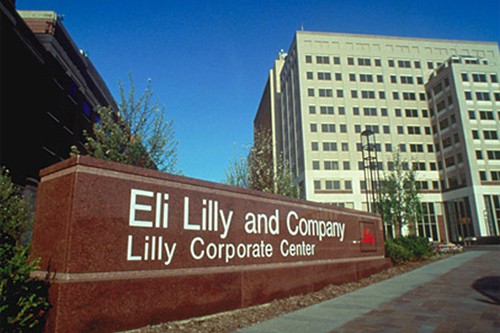
Eli Lilly and partner Incyte have earmarked a January 2018 date to re-file with the FDA their once-rejected rheumatoid arthritis drug baricitinib, much sooner than expected.
The firms also note that they believe the FDA will review the new application in a six-month timeframe, which could set up an approval in the middle of next year and gives baricitinib a chance to become the second JAK inhibitor to be approved in the US for rheumatoid arthritis after Pfizer’s Xeljanz (tofacitinib), which made its debut in 2012.
If that timeframe is observed, baricitinib – which is already approved in Europe and Japan as Olumiant – could reach the US market a year or more earlier than was anticipated after the FDA turned down Lilly and Incyte’s initial marketing application in April.
The US regulator said it had concerns about the safety and dosage of baricitinib in its complete response letter (CRL) to Lilly and Incyte, which is thought to relate to thromboembolic events seen in clinical trials of the JAK inhibitor particularly at the higher of the 2mg and 4mg once-daily doses included in the marketing application.
The FDA also had concerns about Xeljanz’s safety at higher doses, approving Pfizer’s drug at a 5mg twice-daily dose only, saying the benefits of the higher 10mg dose did not outweigh its risks, although the company insists it has seen no evidence of elevated thromboembolic risk with its drug.
Other safety concerns have meant that Xeljanz hasn’t quite fulfilled its early sales promise, however, and it is still often being used after injectable biologics such as AbbVie’s TNF blocker Humira (adalimumab) and other drugs in that class. Nevertheless, Xeljanz is heading for blockbuster status this year with first half sales of $587m, up more than 40% overall and more than 50% in the US.
Lilly is re-filing both the 2mg and 4mg doses of baricitinib, which is important as only the higher dose of the drug outperformed Humira in phase III testing, and approval of the lower dose only could impact its competitive profile.
Potentially more serious for Lilly and Incyte is if thromboembolic risks continue to be an issue with the drug, with analysts at Jefferies suggesting recently that this could “impair the future commercial value of the product”.
Nevertheless, the earlier-than-expected re-submission makes it less likely that baricitinib will be beaten to market by other JAK inhibitor. Those include Galapagos/Gilead Sciences’ filgotinib – which started phase III last year – and AbbVie’s upadacitinib (ABT-494), which recently reported its first pivotal data and has been tipped by some analysts as a future leader of the category with sales of up to $3.5bn.




